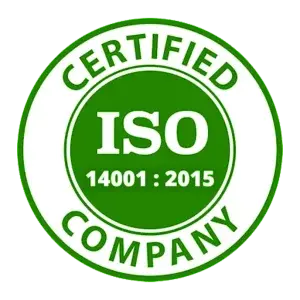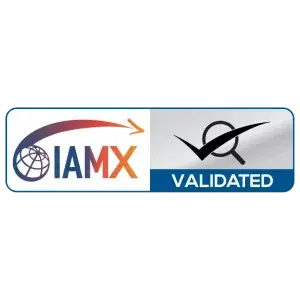Moving to Saudi Arabia is a fascinating adventure, and Saudi Arabia, alongside its extensive past, lively culture, and lucrative economy, has grown into a growing possibility for immigrants. The most important thing to consider prior to committing to such a relocation is the cost of living in Saudi Arabia. In this detailed tutorial, we are going to look at a variety of elements of the cost of living in Saudi Arabia, offering helpful details for those seeking a life in this Middle Eastern gem.
Moving to Saudi Arabia and Starting the journey to a new nation is a thrilling chapter; however, understanding the financial situation will be essential for a seamless transition. In this in-depth guide, we’re going to dive into the intricacies of the cost of living in Saudi Arabia. Whether you’re thinking about relocation or have become a resident, this in-depth guide will provide essential information about living expenses, guiding you in navigating the economic topography of this lively Middle Eastern country.
Understanding the Cost of Living in Saudi Arabia
1. Accommodation Costs
Saudi Arabia has an extensive choice of housing options, from apartments in vibrant towns to immense villas in peaceful areas. The living cost in Saudi Arabia accommodation fluctuates drastically depending on the city and type of property. Riyadh, Jeddah, and Dammam are all significant cities that offer various living costs. Those who have experience often come across fully furnished apartments or buildings with amenities that consist of gyms and pools, which may influence rental prices.
2. Utilities and Bills
Saudi Arabia’s utilities, which include power, water, heating, and cooling, are generally legitimate. Nevertheless, it is essential to look into the usage behavior and temperature in the area you intend to live in. The costs may rise all through the warmer months owing to increased air conditioning consumer demand.
3. Transportation Costs
Moving to Saudi Arabia has an extensive roadway system, and while public transportation is readily available, plenty of foreigners choose to have a car. Fuel prices are low, making personal transportation a cost-effective choice. Consider planning for maintenance, insurance, and probable tolls.
4. Education Expenses
If you have young ones, school living expenses in Saudi Arabia can be an essential consideration. Worldwide educational institutions offer a wide range of curricula, such as British, American, and International Baccalaureate. The cost of education varies, so it’s essential to look into organizations that match your tastes and budget.
5. Healthcare Costs
Saudi Arabia has an excellent healthcare system that offers both public and private possibilities. Those who are exp frequently choose private healthcare due to the quality of service. Health insurance is mandatory for expatriates, and employers often offer coverage. However, it is important to understand the coverage and potential extra charges
6. Grocery Expenses
The cost of living in Saudi Arabia and Groceries in Saudi Arabia are generally affordable. Traditional markets, hypermarkets, and international chains of supermarkets offer a wide range of products. The accessibility of goods from abroad may influence prices; therefore, it’s advisable to look into local alternatives for affordable possibilities.
7. Dining Out and Entertainment
Saudi Arabia has an expansive food landscape preservation and spanning from local eateries to worldwide restaurants. While eating out can be affordable, frequenting luxurious dining establishments can put stress on your budget. Entertainment costs, such as movie tickets and leisure activities, vary but are generally reasonable.
8. Cultural and Social Activities
Being involved in social and cultural events could improve your stay in Saudi Arabia. While a lot of cultural activities are free, subscriptions to clubs, gyms, or private social groups may need an additional fee.
Moving to Saudi Arabia – Initial Costs
Moving to Saudi Arabia is a fascinating attempt that brings together cultural richness with financial possibilities. However, before engaging on this transforming journey, it is essential to understand and arrange for the initial expenditures of the relocation. In this article, we’ll go over the major expenses you can face as you settle into your new life in Saudi Arabia.
1. Visa and Documentation
The initial procedure for traveling to Saudi Arabia is to obtain appropriate visas and documents. From visa fees to processing costs, having the necessary paperwork in place is a vital component of the early expenses. Getting to know oneself with specific processes and taxation will ensure a smooth acceptance into the country.
2. Housing Expenses
Obtaining suitable accommodation is a top awareness upon showing up. Whether you are renting or purchasing a home, there are specific initial expenses to consider, which include rental deposits, agency fees, and probable utility setup costs. Learning about the housing market and learning regarding local standards will help you budget effectively for these first-home expenses.
3. Transportation Costs
Scheduling transportation, whether by automobile rental or via public transportation, is another factor to consider. Initial expenses may include automobile rental fees, transportation passes, or even the purchase of an automobile if you want to stay for an extended period. Understanding the transportation options and associated costs is critical to your initial budget strategy.
4. Healthcare and Insurance
Acquiring healthcare coverage is essential for your well-being in Saudi Arabia. First-time expenditures encompass health insurance premiums, medical check-ups, and any co-payments for health services. Understanding the healthcare system and getting the right coverage will help you make a smooth transition.
5. Education Expenses (If Applicable)
Children’s fees for school are a key consideration to consider when relocating with families. School enrollment fees, uniform costs, as well as other related school supplies should be integrated into the initial budget for the school year. Researching schools and understanding how they charge will help you budget for these educational expenses.
6. Setting Up Utilities
When you move, you are going to have to set up utilities, including power, water, and internet service. Connecting fees, security deposits, and the first month’s expenditures are all possible upfront expenses. Arranging for these utilities in advance can guarantee that your new home has all the necessary amenities when you arrive.
Budgeting Tips for Expatriates
1. Research and Compare Costs:
Before you relocate, investigate the cost of living in Saudi Arabia’s several cities and compare expenses to make informed options.
2. Negotiate Packages:
When relocating for employment, arrange a comprehensive expatriate package with the company you’re working for, which may include housing, education, and health insurance.
3. Explore Local Markets:
Take into account visiting local markets and smaller shops to purchase food and everyday products, as they may have more affordable options.
4. Financial Planning:
Make an exhaustive budget that includes all living expenses, savings, and any unexpected costs.
5. Network and Seek Advice:
Connect with other expatriates or residents to learn about cost-effective living and get tips on navigating the local lifestyle.
Conclusion
Understanding the cost of living in Saudi Arabia will help you accomplish a smooth transition. The kingdom presents a unique blend of historic sophistication and modern convenience, and with smart financial planning, you may maximize your experience. Whether you are lured by job opportunities, cultural curiosity, or the appeal of desert vistas, Saudi Arabia welcomes you with open arms and a plethora of experiences to share.
















